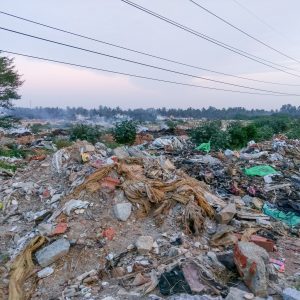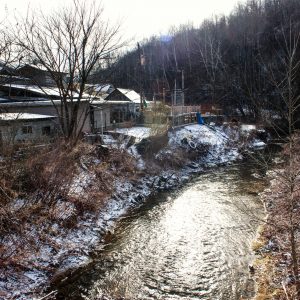The Stream, February 28: Yemen’s Cholera Outbreak Likely to Intensify as Rainy Season Begins, WHO Warns
The Global Rundown
The World Health Organization (WHO) warns that Yemen’s cholera epidemic could intensify during the upcoming rainy season. A recent study suggests that swimming in the sea increases the risk of illness, possibly due to coastal pollution. A U.S. federal judge halts the construction of Louisiana’s controversial Bayou Bridge pipeline. Environmental scientists warn that nearby oil reserves could threaten Colombia’s Caño Cristales, also known as “the river of five colors.” Climate change is bringing unprecedented weather extremes to global cities, says the C40 climate change alliance.
“In most cases, we’ve experienced something beyond what the model projected, whether that’s for flooding, for extremes of heat, or just the switches in the violence of weather we’re seeing.” –Mark Watts, executive director of the C40 climate change alliance, in reference to severe weather events in cities across the globe. Nearly half of the 92 cities in the C40 network endured extreme flooding last year. Ten C40 cities, including Cape Town and Mexico City, are on “danger watch,” meaning they could run out of water if rainfall drops substantially below average. Reuters
In context: Circle of Blue’s coverage of Cape Town.
Latest WaterNews from Circle of Blue
Booming Infrastructure Poisons Bangalore’s Lakes, Depletes Groundwater – Bangalore’s largest lake is so contaminated that it routinely catches fire. Officials are unsure how to contain the city’s pollution.
International Conference Discusses Remedies to Lake Chad Crisis – Ambitious engineering project on the agenda.
By The Numbers
163 miles Proposed length of Louisiana’s Bayou Bridge pipeline, which would carry 480,000 barrels of crude oil across the state’s Atchafalaya River basin each day. A U.S. federal judge revoked a permit for the pipeline last week amid concerns that the project would negatively alter water flows in the Atchafalaya basin. Yale Environment 360
15,000 Number of tourists who visited Colombia’s Caño Cristales last year. The river is home to M. clavigera, a colorful plant that gives the river a “melted rainbow” appearance. Scientists warn that the colorful river may soon be in danger depending on the outcome of a lawsuit over rights to nearby oil reserves. The New York Times
Science, Studies, And Reports
A U.K.-based research team analyzed data on coastal water in countries such as the U.S., U.K., and Spain and found that people who swim in the sea are more likely to have stomach bugs, ear infections, and other illnesses. The study suggests that the increased chance of illness may be linked to pollution from sources such as sewage and farm run-off. The Guardian
On The Radar
Cholera cases in Yemen could spike as the country enters its upcoming rainy season, according to the World Health Organization. Yemen’s cholera outbreak began in 2016, and over one million cases of the waterborne disease have been reported since then. Al Jazeera
In context: HotSpots H2O, February 26: Spotlight on Yemen’s ongoing import blockade.
Kayla Ritter is a recent graduate of Michigan State University, where she studied International Relations and Teaching English to Speakers of Other Languages. She is currently based in Manton, Michigan. Kayla enjoys running, writing, and traveling. Contact Kayla Ritter





